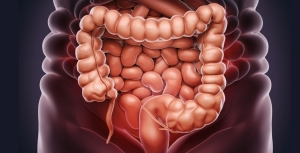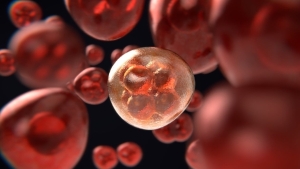Alcohol Consumption and Colorectal Cancer: Evidence and Prevention
Colorectal cancer (CRC) ranks as the third most common type of cancer and is the second leading cause of cancer deaths globally. A sedentary lifestyle, obesity, metabolic syndrome, and alcohol consumption can be factors that increase the risk of early-onset CRC (1).
Alcohol consumption, even in small amounts, has been linked to an increased risk of colorectal cancer (CRC). The relationship between alcohol intake and CRC risk depends on the dose consumed. The risk of CRC is particularly evident in cases of heavy alcohol consumption, although evidence regarding the risk associated with light to moderate consumption is varied (2).
Several mechanisms link alcohol consumption to the development of cancers in general, with genotoxicity being one of the most scientifically understood factors. In this process, acetaldehyde, a byproduct of alcohol metabolism, causes DNA damage, such as breaks and alterations in its structure. These changes can result in errors during DNA replication, leading to mutations. Over time, the accumulation of these mutations may culminate in the development of cancer (3).
In addition to alcohol consumption itself, other alcohol-related factors may influence the risk of colorectal cancer (CRC). A family history of the disease is one such factor, with the risk of CRC being significantly higher in individuals with a family history of cancer (4). Gender also appears to have an impact, with men tending to have a higher risk of developing alcohol-associated CRC compared to women. Body mass index (BMI) and body weight may also interact with alcohol, increasing the risk of CRC, especially in obese individuals (5). Although smoking is an established risk factor for CRC, there is no conclusive evidence that it modifies the alcohol-induced CRC risk (6).
In light of the evidence, it is crucial to raise awareness about the risks of alcohol consumption in relation to colorectal cancer. Although various factors can influence this risk, alcohol consumption alone is a significant modifiable risk factor. Prevention strategies, including moderating alcohol consumption and adopting healthy lifestyle habits, are essential to reduce the incidence of CRC. Continued research is also necessary to better understand the mechanisms by which alcohol contributes to the development of CRC.
References:
- Sung, H., Ferlay, J., Siegel, R. L., Laversanne, M., Soerjomataram, I., Jemal, A., & Bray, F. (2021). Global Cancer Statistics 2020: GLOBOCAN Estimates of Incidence and Mortality Worldwide for 36 Cancers in 185 Countries. CA: a cancer journal for clinicians, 71(3), 209–249. https://doi.org/10.3322/caac.21660
- Cai, S., Li, Y., Ding, Y., Chen, K., & Jin, M. (2014). Alcohol drinking and the risk of colorectal cancer death: a meta-analysis. European journal of cancer prevention : the official journal of the European Cancer Prevention Organisation (ECP), 23(6), 532–539. https://doi.org/10.1097/CEJ.0000000000000076
- International Agency For Research On Cancer. IARC Handbooks of Cancer Prevention: volume 20A - Reduction or cessation of alcoholic beverage consumption. Lyon: IARC, 2024
- Cho, E., Lee, J. E., Rimm, E. B., Fuchs, C. S., & Giovannucci, E. L. (2012). Alcohol consumption and the risk of colon cancer by family history of colorectal cancer. The American journal of clinical nutrition, 95(2), 413–419. https://doi.org/10.3945/ajcn.111.022145
- Fedirko, V., Tramacere, I., Bagnardi, V., Rota, M., Scotti, L., Islami, F., Negri, E., Straif, K., Romieu, I., La Vecchia, C., Boffetta, P., & Jenab, M. (2011). Alcohol drinking and colorectal cancer risk: an overall and dose-response meta-analysis of published studies. Annals of oncology : official journal of the European Society for Medical Oncology, 22(9), 1958–1972. https://doi.org/10.1093/annonc/mdq653
- Fagunwa, I. O., Loughrey, M. B., & Coleman, H. G. (2017). Alcohol, smoking and the risk of premalignant and malignant colorectal neoplasms. Best practice & research. Clinical gastroenterology, 31(5), 561–568. https://doi.org/10.1016/j.bpg.2017.09.012
Alcohol Consumption Reduction and Cancer Prevention: New Estimates and Public Health Implications
Agosto 20, 2025Alcohol Consumption Reduction and Cancer Prevention: New Estimates and Public Health Implications
A study shows that 83% of alcohol-attributable cancer deaths could be prevented if people consumed alcohol within recommended guidelines. These findings reinforce the central role of prevention in addressing avoidable alcohol-related deaths and provide valuable support for public health policies.
Alcohol consumption is one of the leading preventable risk factors for cancer development. According to the World Health Organization (WHO), alcohol is responsible for approximately 4% of all cancer cases globally, affecting organs such as the liver, breast, colon, mouth, and esophagus (1).
Despite this, harm reduction interventions still face major barriers, including low risk perception, cultural normalization of heavy drinking, and insufficient public health prevention policies.
A study published in the journal JAMA modeled the impact of reducing alcohol consumption on cancer mortality among adults in the United States (2). The authors used population and mortality data from the Centers for Disease Control and Prevention (CDC), estimating that over 10,000 alcohol-attributable cancer deaths could be prevented over the lifetime of current adults with even modest reductions in consumption—particularly by reducing binge drinking episodes.
The study examined different scenarios of alcohol reduction, including replacing excessive consumption with moderate drinking—defined by U.S. Dietary Guidelines as up to one drink per day for women and up to two for men—and complete abstinence.
Estimates suggest that approximately 83% of the nearly 20,000 alcohol-attributable cancer deaths per year in the U.S. could be avoided if all adults who drink alcohol kept their consumption within recommended limits.
The types of cancer with the greatest potential for prevention included liver, oropharyngeal, and breast cancers, given their strong association with heavy drinking patterns.
Additionally, the analysis indicates that population-level interventions—such as increased alcohol taxes, advertising restrictions, warning labels about cancer risks, and expanded clinical counseling in primary care settings—are highly cost-effective strategies for significantly reducing avoidable cancer mortality linked to alcohol.
Implications for Brazil
Although the study focused on the United States, the lessons are highly applicable to the Brazilian context. It is estimated that approximately 17,000 new cancer cases per year in Brazil are attributable to alcohol consumption (3).
However, public awareness of this risk remains low. Reducing alcohol intake is one of the most effective and cost-efficient strategies for preventing cancer deaths.
Studies like the one by Esser et al. provide strong evidence to support policies that place prevention at the center of the public health agenda.
References:
- Rumgay, H., Shield, K., Charvat, H., Ferrari, P., Sornpaisarn, B., Obot, I., Islami, F., Lemmens, V. E. P. P., Rehm, J., & Soerjomataram, I. (2021). Global burden of cancer in 2020 attributable to alcohol consumption: a population-based study. The Lancet. Oncology, 22(8), 1071–1080. https://doi.org/10.1016/S1470-2045(21)00279-5
- Esser, M. B., Sherk, A., Liu, Y., Henley, S. J., & Naimi, T. S. (2024). Reducing Alcohol Use to Prevent Cancer Deaths: Estimated Effects Among U.S. Adults. American journal of preventive medicine, 66(4), 725–729. https://doi.org/10.1016/j.amepre.2023.12.003
- Rezende, L. F. M., Lee, D. H., Louzada, M. L. D. C., Song, M., Giovannucci, E., & Eluf-Neto, J. (2019). Proportion of cancer cases and deaths attributable to lifestyle risk factors in Brazil. Cancer epidemiology, 59, 148–157. https://doi.org/10.1016/j.canep.2019.01.021



